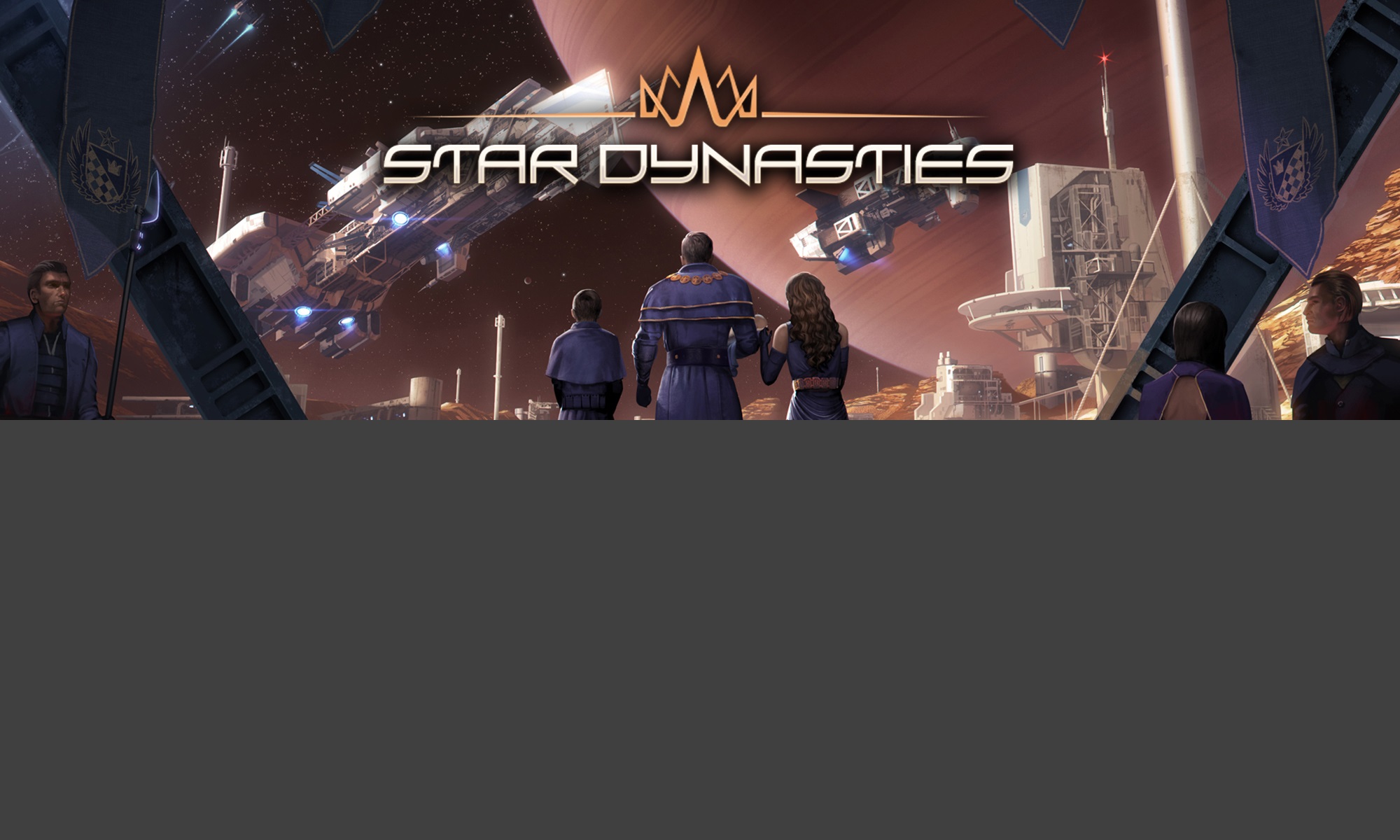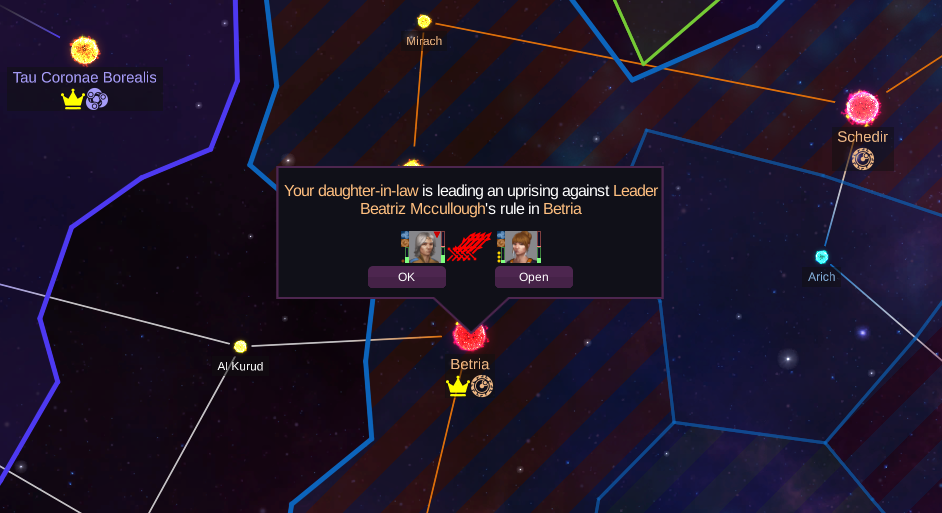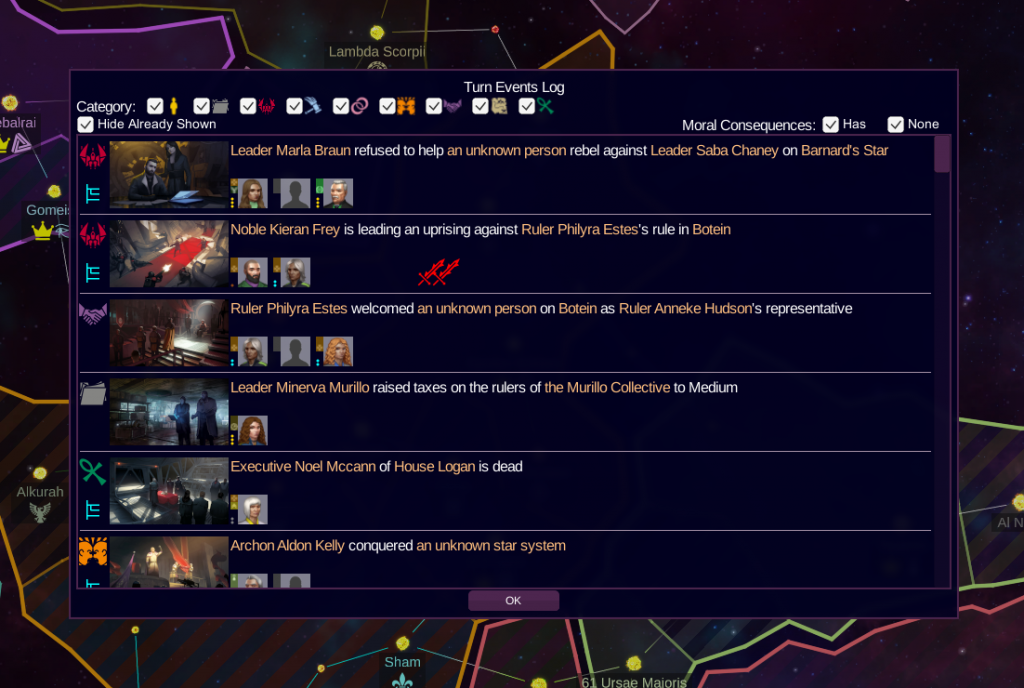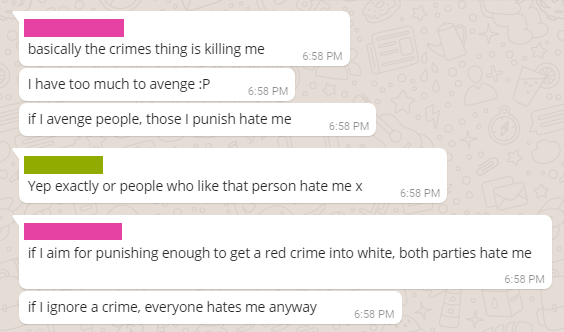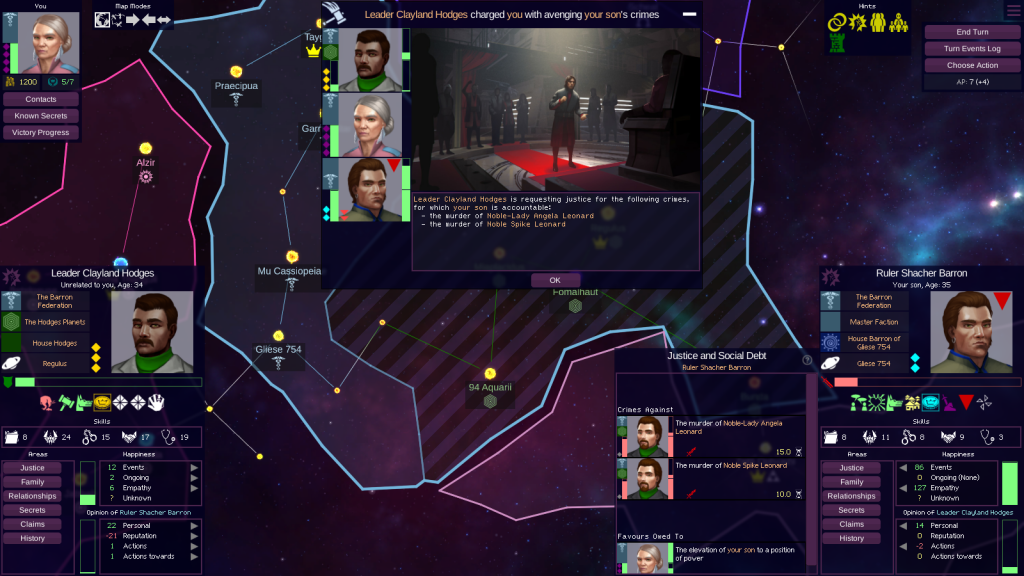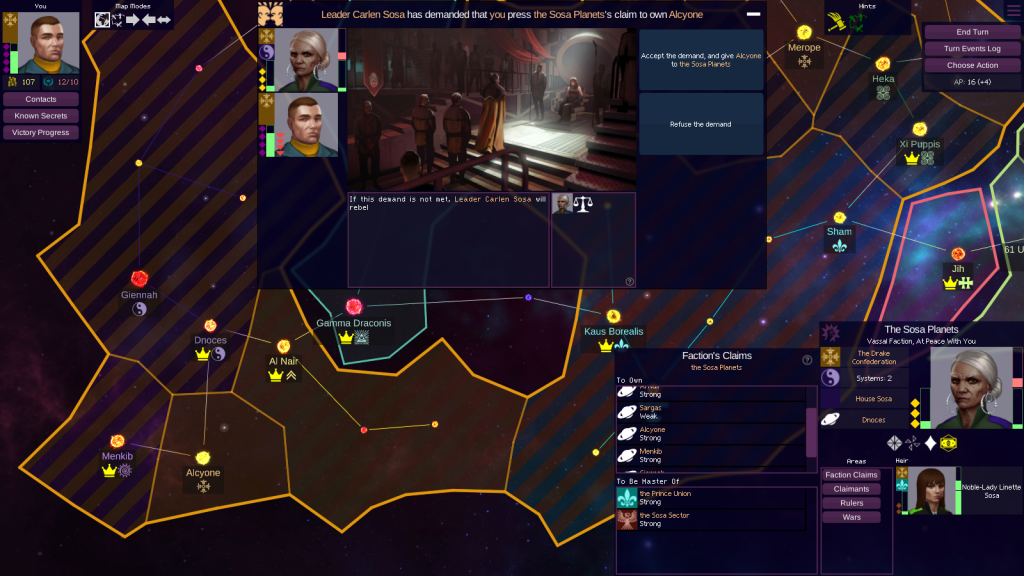Star Dynasties has been in the hands of early alpha testers for two weeks. I’m pleased that there have been only a few bugs reported, and no serious issues. Most of the feedback has been about how to improve the UI and how the game’s systems could be made richer, which is exactly what I was hoping for.
I will be providing regular updates about what I’m working on next and what my plans are. That means that sometimes I will make mistakes, or brainstorm something that then proves to be unrealistic, hard to implement, or simply not fun. Please be patient with me when that happens.
The main focus of my next few months is going to be content. Specifically I will be working on the following eight areas, in rough order of priority.
Social Status
This will rename and extend “General Public Opinion”. More of what you do will raise or lower social status; performance in combat and wars, engaging in diplomacy, marrying into other high/low status houses, gaining or losing systems, etc. Having high social status will be a key component of getting what you want; stability of rule, marriageability of yourself and your kin, general helpfulness of other characters, etc. This will make non-moral actions and events more significant than they are at the moment, opening up to a lot of smaller scale content that provides interesting decisions.
Story Events
Most of the content right now is the core of the game; the political system, the marriage system, administering your house and family, a legal system, economy, etc. These are fundamental to the way this feudal world works, must be present in at least a basic way, and are deeply and tightly interlinked with each other. Now that the skeleton is solidifying, I would like to put some flesh on the bones, in the form of smaller snippets of narrative to bring the world and your character’s story to life. Examples; you receive an SOS call from a broken down ship in space, a rogue AI has survived from the Collapse, your son brings back some valuable resources from an exploratory mission to another system, etc.
Deeper House Areas
Members of your house are assigned to one of five roles (Administration, Military, Security, Diplomacy, Medical). Each of these areas govern various bonuses that your house gets. Diplomacy-assigned characters can also be sent as ambassadors to other houses (and can be then sneakily used to sabotage other systems). My intention is to add more decisions and events that are related to the activities within these house areas. My current ideas are to add a high level decision that sets the focus of each area (e.g. military focus on defence, attack, or rearmament), and an activity to which you can assign members in an area (e.g. security team members can be assigned to investigate specific characters).
Negotiation
Right now, when you make a request or offer to another character, it is accepted or rejected based primarily on whether that character likes you, to what extent it is to their personal advantage, and whether you will subsequently owe them a favour. Your main lever is to have improved relations with them prior to the request. This system aims to extend that by allowing characters to make a counter-proposal, accepting the request on the basis that you do some other action (something like diplomacy works in SMAC). This is the biggest challenge, and most tentative item, on this list.
Basic Character Customisation
When you start a game of Star Dynasties you are currently given a random leader and faction to play. I will add the ability to change the full appearance of the initial character, and to change a subset (hair, clothes) for any character you play during the game. You will also be able to name children that are born in your house. In future I would like the player to have more customisation options at the start of the game (sex, traits, house composition), but those will came in a later iteration.
Gatherings
This will be a story event that triggers when a major political or social event happens such as your marriage or that of your heir, the victorious conclusion of a war, or the signing of a major treaty. A celebration is hosted by your house, to which other rulers and leaders can attend. The celebration can have various consequences as the powerful mix; alliances can be born, or a personal faux pas can create rifts between characters. A villain may find the opportunity to take advantage of being close to a rival.
Deeper combat
My priority for making combat more engaging is to add opportunities for character narratives e.g. getting hurt / dying in combat, having the opportunity to save a rival’s life, choosing a lieutenant to lead a particular engagement, a character distinguishing themselves in a skirmish, etc. I would also like to add some high-level strategic decisions such as building listening satellites in a system that you want to fortify, or use as a launch pad for a military adventure.
Character Movement
Characters are currently locked into their house, except when they move through marriage. I would like to add the possibility of characters being traded between houses outside of marriage, even being tempted to run away perhaps. Another concept I want to address is the rigidity of house membership. Take, for example, the following scenario. Your heir marries into another house. Their wife then dies shortly after. Is it realistic that your son remains a member of that house, given your stake in finding them a new marriage partner?
There are obviously many other areas that can be extended or added (feedback on the reddit has already touched on trade, hostages, fleshing out colonies more deeply, aliens, etc..). The above are the areas that I feel are the most important to work on at this stage. I welcome feedback on these choices, and how they could be implemented in interesting ways.
In the short term, I am planning a small release for the end of October, which will contain some odds and ends that I am taking the opportunity to work on while looking at the feedback that comes in from the alpha group. After that I will be working on the Social Status changes, and hopefully will have something playable for mid/late November.
Comments? Click here.
